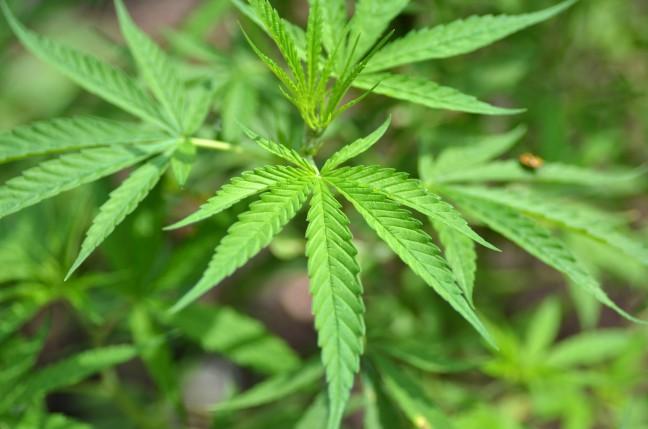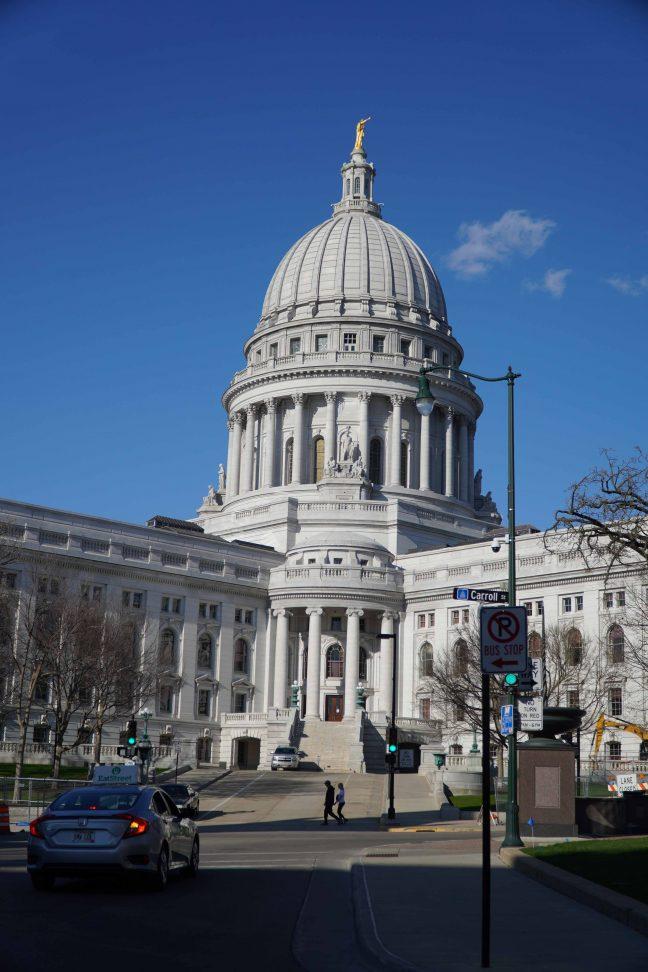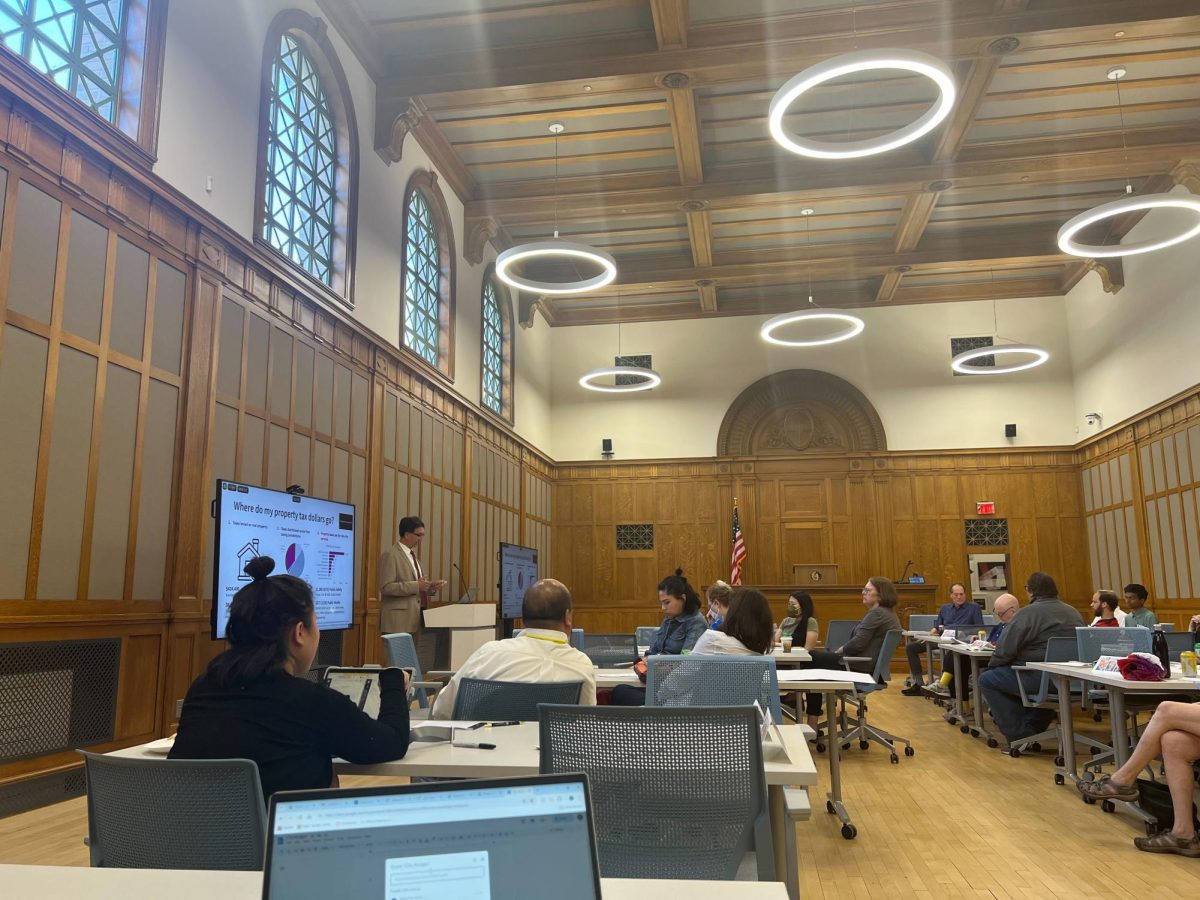The Madison Common Council considered further decriminalizing cannabis and banning facial recognition technology used by the Madison Police Department.
The author of the cannabis bill, Alder Michael Verveer, said his legislation would practically legalize marijuana in Madison — with some exceptions. The legislation to ban facial recognition technology would prohibit the Madison Police Department from obtaining or using the technology.
While 17 out of the 19 city Alders sponsored the legislation to amend the city’s ordinances governing cannabis, the ban on facial recognition technology is still under review by the Public Safety Review Committee. In an Oct. 14 PSRC meeting, the Madison Police Department voiced concerns about the proposed ban, requesting more time to consider the issue.
Facial recognition technology can identify a person by scanning their face and comparing it to a large database of images, according to the ACLU. Using it, law enforcement agencies can identify suspects much quicker than traditional forensic methods like DNA analysis. According to a 2016 Georgetown study, one in four U.S police departments has the capability to use facial recognition software. That includes the MPD.
Alders propose to decriminalize use, possession of cannabis in Madison
“We do currently work with external partners to use facial recognition technology, primarily to address human trafficking, child pornography and other internet crimes against children,” Acting MPD Police Chief Victor Wahl said. “The ordinance, as introduced, would significantly impact our ability to investigate these crimes against children, rescue children from human trafficking, and protect child victims.”
While facial recognition technology can help police departments solve crimes, critics say it also can also be abused. According to NPR, authorities in China combine artificial intelligence and facial recognition software to track ethnic minorities such as the Uighurs. In the U.S., Baltimore police used facial recognition technology to identify protesters during the 2015 Baltimore protests, according to the Baltimore Sun.
It isn’t just local police departments who use facial recognition technology, either. According to Verge, one of the largest facial recognition companies, Clearview, considers Immigration and Customs Enforcement one their major clients.
Furthermore, studies proved facial recognition software can be biased. In a 2018 MIT study, Joy Buolamwini demonstrated even the best facial recognition technologies at the time consistently misidentified women and people with darker skin.
The author of the ban on facial recognition technology Alder Max Prestigiacomo included this among his reasons for proposing a ban on the technology.
Community members voice concerns over unauthorized use of tear gas by Dane County Sheriff’s deputy
“Facial Recognition technology is dangerously untested and unregulated. Data already shows how this technology’s usage could impact our community and, most importantly, marginalized communities.” Prestigiacomo’s city council page states. “This technology has also been found to have racial bias and inaccuracies that could have disastrous and fatal consequences for marginalized people in our community.”
Laws punishing cannabis possession also play a role in systematic racism, according to UW Professor and expert on mass incarceration Dr. Ion Meyn. In an email, Meyn said despite drug-use rates being relatively equal among races, the criminal justice system arrests and prosecutes Black Americans at a significantly higher rate than white Americans.
According to Meyn, statutes that convert drug-possession misdemeanors into felonies after multiple convictions only compound systematic racism. Though Madison’s existing ordinance does state possessing cannabis or marijuana is not a crime, it does make possessing cannabis in public punishable with a $50 fine which, once added to mandatory court fees, amounts to $124.
The cannabis bill’s leading co-sponsor, Alder Prestigiacomo, said the payment structure favored white, affluent residents, while only aggravating poverty and homelessness. The new legislation would legalize the possession of under 28 grams of cannabis in most public spaces and reduce the fine for violating the ordinance to $1, added to the mandatory court costs.
UPDATED: Madison leadership announces appointments for MPD Civilian Oversight Board
The author of the bill, Alder Michael Verveer, cited social justice as his driving reason for the new legislation.
“What changed for me was the murder of George Floyd,” Alder Verveer said. “And the national reckoning over systematic racism. The reality is that cannabis law enforcement is one area where there are clearly disparities in enforcement both locally and nationally.”
Alder Verveer said before beginning work on the legislation, he requested MPD do a study on its cannabis citations during a 20 year period. He said the study found despite only comprising 7% of Madison’s population, Black Madisonians accounted for 43% of cannabis citations.
Alder Verveer said he hoped his legislation would improve the trust between the MPD and the communities they serve, though he recognized the underlying problem was the equity of the MPD’s enforcement.
In the Oct. 14th Public Safety and Review meeting, Wahl said his main concerns with the cannabis legislation were the age of use and traffic safety. He said he believed the legislation’s legal age of use for marijuana should be the drinking age of twenty-one and it would be difficult to prevent people from consuming marijuana before driving.
City Council blocks MPD funding for projectile launchers, approves civilian oversight committee
Verveer said his bills would allow the possession of up to 28 grams of cannabis and cannabis-related drug paraphernalia for individuals 18 and older in public and private spaces — the exceptions being non-smoking zones and the areas in and around elementary and high schools. Verveer said the bills would also prohibit marijuana use while driving and would not prohibit the MPD from arresting individuals for selling marijuana.
The Common Council will vote on the cannabis bills in their virtual council meeting Nov. 17th. The Public Safety Review Committee will further consider the ban on facial recognition technology in their next meeting, which has yet to be scheduled. More information can be found on the City of Madison website.


















